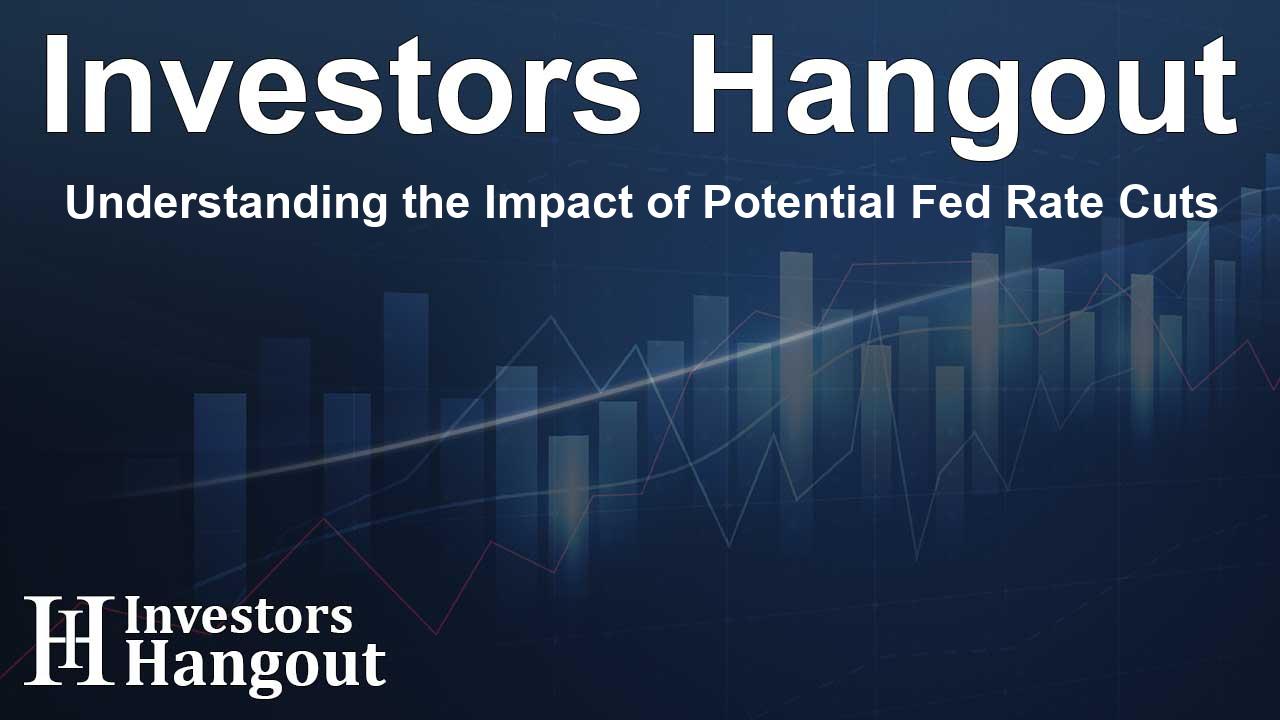Understanding the Impact of Potential Fed Rate Cuts

The Fed's Rate Cut Debate: What Investors Should Know
Wall Street is currently buzzing with discussions around possible Federal Reserve rate cuts. The central question isn’t just whether a rate cut will occur, but rather how significant that cut will be — will it be 25 basis points or a more substantial 50?
Recent Economic Indicators and Their Implications
The debate for a larger rate cut has gained momentum recently. A noticeable decline in the strength of the jobs market has led many economists and strategists to advocate for a more aggressive approach by the Federal Reserve. They argue that a drastic cut is necessary to prevent the economy from slipping further.
The Argument for Caution
Despite the urgency, many experts are raising concerns about the implications of a 50 basis point reduction. They suggest that such a significant cut could communicate a sense of panic, suggesting that the Fed has fallen behind in managing the economic situation. Jennifer Lee, a senior economist at BMO Capital Markets, mentioned, "A 50 basis point cut would reek of panic, which is not the message we should be sending to the market." This perspective emphasizes the importance of a measured response rather than a hasty one.
Current Economic Resilience
Supporters of a more tempered approach point to various indicators that reflect economic resilience. The upward revision of second quarter GDP figures, alongside stable consumer spending and the absence of mass layoffs, leads some economists to believe that a softer approach could be beneficial. Lee suggests that a soft landing is still a possibility, reinforcing this cautious stance.
Market Reactions and Volatility Risks
Market experts also warn that too drastic of a cut could lead to increased volatility. Eric Wallerstein from Yardeni Research highlighted that such a significant reduction might not only shock investors but could also create instability in short-term funding markets. He urged that anyone pushing for a 50 basis point cut should consider the potential consequences.
Strategist Opinions on Future Moves
Additionally, Goldman Sachs chief economist Jan Hatzius has remarked on the possibility of a series of smaller cuts instead, maintaining the option for a larger cut if necessary but leaning towards more measured adjustments amid the current economic stability.
Traders' Expectations as the Decision Approaches
As the Fed's decision date approaches, traders are adjusting their expectations, with nearly equal odds being priced for both a 25 and 50 basis point cut. Market dynamics indicate rising speculation around a 50 basis point cut, with probabilities climbing significantly in recent days.
Addressing Recession Fears
Central to this discourse is the overarching concern of a potential recession. This anxiety has lingered among investors and economists alike. Jim Paulsen, a long-time market strategist, posits that the persistent fear isn't solely based on negative economic signals but also due to a lack of reliable forecasting tools.
Concluding Thoughts
While the upcoming Fed decision won't likely put an end to Wall Street's recession debates, it will undoubtedly shape investors' immediate perspectives. Depending on the size of the cut, it may provide hints about future economic risks, influencing market sentiment considerably.
The current landscape calls for careful navigation as we await the central bank's determination. Whether the outcome leans towards a smaller, calculated cut or a more dramatic approach, stakeholders must prepare for the possible ripple effects on financial markets.
Frequently Asked Questions
What is a rate cut?
A rate cut occurs when the central bank lowers the interest rates it charges banks, encouraging borrowing and spending to stimulate the economy.
Why are economists concerned about a large rate cut?
Economists worry a large rate cut may indicate panic and be a signal of economic weakness, which could lead to market instability.
How does the jobs market influence rate cuts?
A weakening jobs market can prompt calls for rate cuts as it may indicate slowing economic growth, warranting action from the Federal Reserve.
What is the difference between 25 basis points and 50 basis points?
25 basis points refer to a quarter percent, while 50 basis points refer to half a percent. The greater the cut, the more aggressive the Fed's approach appears.
How can investors prepare for potential rate cuts?
Investors can assess market trends, diversify their portfolios, and stay informed about economic reports and Fed announcements to better navigate potential cuts.
About The Author
Contact Riley Hayes privately here. Or send an email with ATTN: Riley Hayes as the subject to contact@investorshangout.com.
About Investors Hangout
Investors Hangout is a leading online stock forum for financial discussion and learning, offering a wide range of free tools and resources. It draws in traders of all levels, who exchange market knowledge, investigate trading tactics, and keep an eye on industry developments in real time. Featuring financial articles, stock message boards, quotes, charts, company profiles, and live news updates. Through cooperative learning and a wealth of informational resources, it helps users from novices creating their first portfolios to experts honing their techniques. Join Investors Hangout today: https://investorshangout.com/
The content of this article is based on factual, publicly available information and does not represent legal, financial, or investment advice. Investors Hangout does not offer financial advice, and the author is not a licensed financial advisor. Consult a qualified advisor before making any financial or investment decisions based on this article. This article should not be considered advice to purchase, sell, or hold any securities or other investments. If any of the material provided here is inaccurate, please contact us for corrections.
